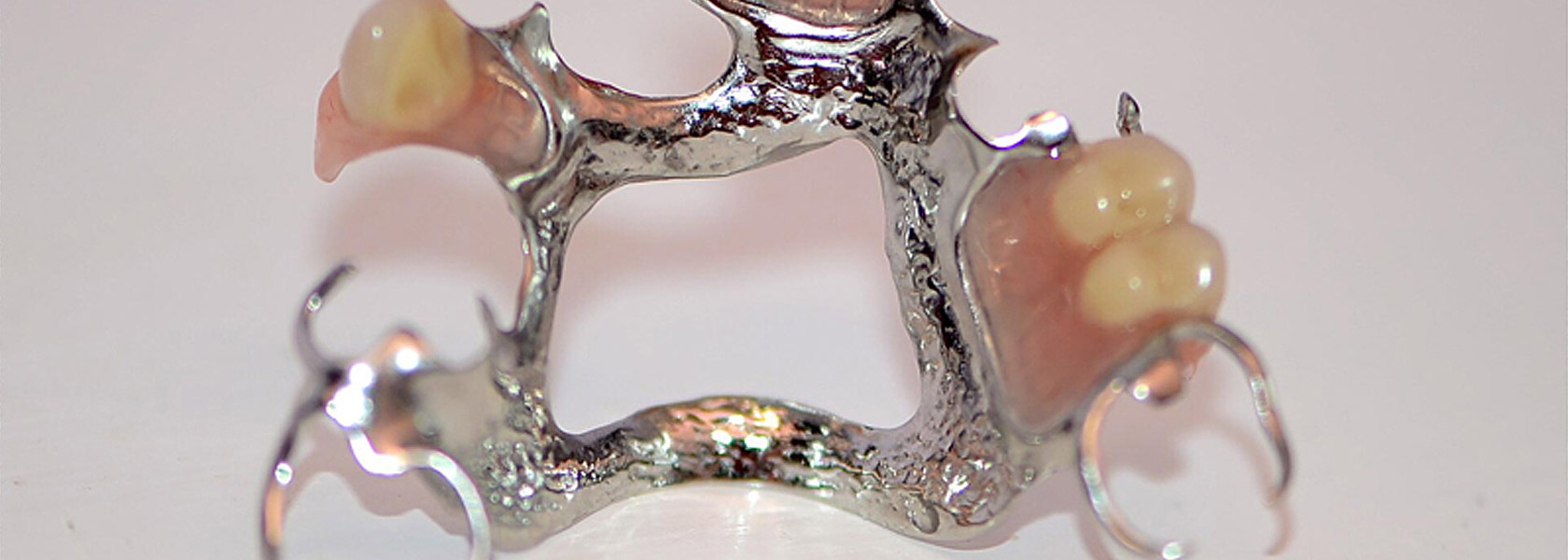Why choose Chrome Framework?
The supporting framework of dentures is a crucial component designed to ensure the stability, fit, and overall functionality of the appliance. It plays a key role in distributing the forces of chewing evenly across both the residual teeth and the residual alveolar ridge, as well as other soft and hard tissues, providing essential support for optimal performance and comfort.

At Centenary Family Denture Clinic, each type of framework is selected based on your unique needs, including the condition of residual teeth, the health of the residual alveolar ridge, and other soft and hard tissues. Our team will help determine the most suitable framework to ensure that your dentures provide both functional effectiveness and comfortable wear.
Metal Frameworks
For many partial dentures, a metal framework is used to offer strength and durability. Typically made from lightweight, corrosion-resistant alloys such as cobalt-chromium, this framework is engineered to fit securely over the existing natural teeth and the residual alveolar ridge. At Centenary Family Denture Clinic, our chrome frameworks are crafted right here in Brisbane, Australia, by Greg Rowston, a renowned chrome technician and former prosthetist. You can learn more about his work at Hi-Tech Dental Lab. The metal framework includes clasps or hooks that anchor the denture in place, ensuring stability and effective force distribution.
Acrylic Frameworks
Acrylic frameworks are commonly used in both complete and partial dentures. Acrylic, a versatile plastic material, is molded to conform to the contours of the mouth, providing a base that supports the artificial teeth. This material allows for easy adjustments and can be color-matched to the natural appearance of the residual alveolar ridge, enhancing both comfort and aesthetics.
Flexible Frameworks
Flexible dentures use a range of advanced materials that offer increased pliability compared to traditional acrylic. These materials adapt closely to the contours of the mouth, providing a snug fit and even distribution of forces across both the residual teeth and the residual alveolar ridge. Flexible frameworks are especially beneficial for patients with sensitive areas, those seeking a lighter solution, or individuals who are allergic to traditional denture materials.
Combination Frameworks
Some dentures incorporate a combination of different materials to achieve the desired balance of strength, comfort, and aesthetics. By integrating various materials, these frameworks can offer enhanced durability, a more natural appearance, and improved fit, effectively accommodating the complexities of both soft and hard tissues in the mouth.
